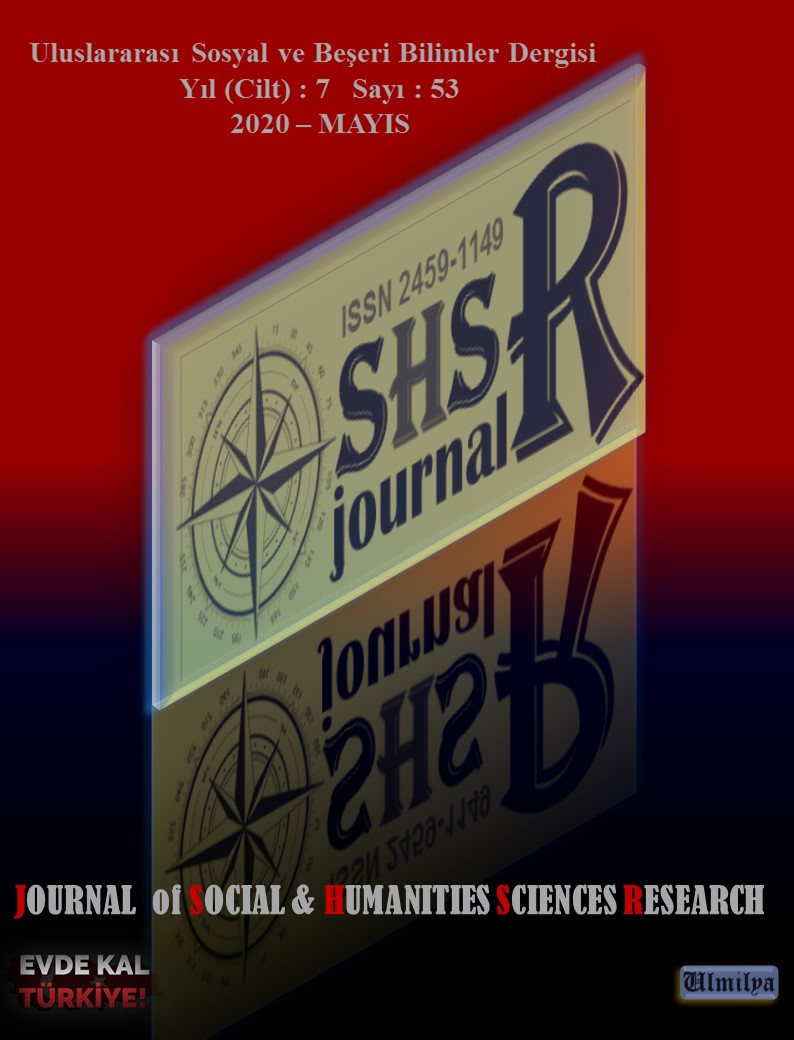EXAMINING THE CROSS-CULTURAL COMPETENCIES OF HEALTHCARE PROFESSIONALS AS A HEALTH MANAGEMENT STRATEGY
DOI:
https://doi.org/10.26450/jshsr.1854Anahtar Kelimeler:
Culture, intercultural competence, health professionals, health management, strategyÖzet
Objective: A culturally competent health system can help improve health outcomes and quality of care. This competence can contribute to the elimination of racial and ethnic health inequalities. Examples of the health system's strategies to achieve these goals are training of health professionals in cultural competence and intercultural issues, and the establishment of policies that reduce administrative and linguistic barriers to patient care. In this study, it was aimed to examine the intercultural competencies and related factors of health professionals, which are the most important production factors in the management and delivery of health services.
Material and Method: The population of the research was 512 health professionals working in two public hospitals in Istanbul. The sample was 215 people due to voluntary participation and inaccessibility. This descriptive and cross-sectional study was carried out between July 2018 and September 2018. The Cross-Cultural Competence of Healthcare Professionals (CCCHP) was used with the Individual Information Form developed by the researchers to collect the data and the Personal Information Form developed by the researchers. SPPS 25.0 statistical software was used to evaluate the data. Continuous variables were expressed as mean ± standard deviation, categorical variables as numbers or percentages. Kolmogorov-Smirnov test was used to evaluate whether the distribution of variables was normal. It was determined that the variables showed normal distribution. The t-test was used to compare quantitative continuous data between two independent groups, and the One-way Anova test was used to compare quantitative continuous data between two independent groups. After the Anova test, Scheffe test was used as complementary post-hoc analysis to determine the differences.
Results: The average age of the healthcare professional was 33.66 ± 9.65 71.6% (n = 154), female, 122 (56.7%) undergraduate, 108 (50.2%) nurses / midwife / health officer, 93 (43.3%) by year of employment in the profession, 191 (88.8%) by ethnicity are Turkish, and 130 (60.5%) have no migration background determined. In addition, the "Intercultural Competence Scale of Health Professionals Scale" total score average is 3,377±0,514 and it is at the medium level. When the relationship between the factors affecting intercultural competence and the total score of the scale is examined; There was a significant difference (p <0.05) according to age, education level, occupation, year of study, and region characteristics lived for a long time. Conclusion: The intercultural competence levels of healthcare professionals were found to be moderate. It is important that health professionals have the responsibility to communicate effectively with patients of different faiths and cultures and to provide care with a holistic approach. For this reason, trainings can be provided to healthcare professionals about having interpreters in basic health institutions, increasing the diversity of workforce, and healthcare professionals. It may be beneficial to make new arrangements at the organizational and structural level of health systems to effectively respond to the needs of the immigrant population.
İndir
Yayınlanmış
Nasıl Atıf Yapılır
Sayı
Bölüm
Lisans
Telif Hakkı (c) 2020 International JOURNAL OF SOCIAL HUMANITIES SCIENCES RESEARCH

Bu çalışma Creative Commons Attribution 4.0 International License ile lisanslanmıştır.


